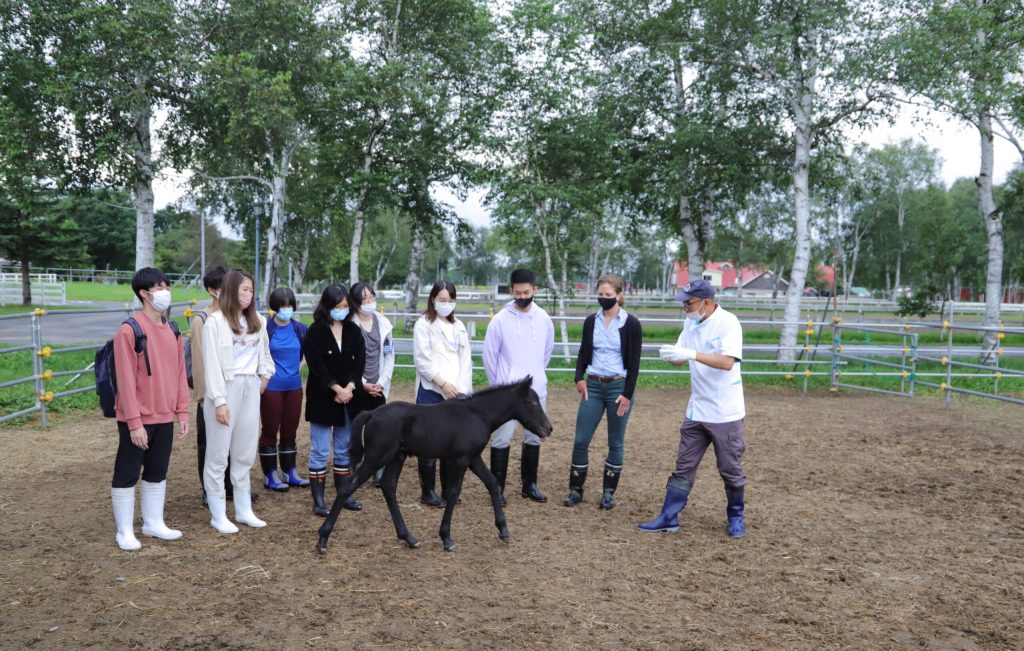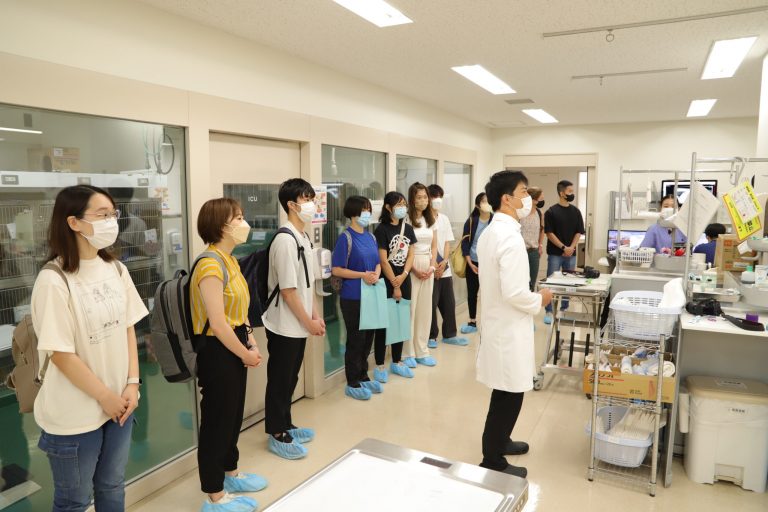
The course Advanced Seminar in Applied Veterinary Medicine: Wildlife Medicine I (Zoo Science) was held between August 22, 2022 and August 29, 2022 as part of the Hokkaido Summer Institute (HSI) 2022. The course, a study tour, is in the field of Veterinary Sciences. It takes participants to a number of towns across eastern Hokkaido, where livestock farming is a major industry, and gives them a wide view of veterinary care practices for a diversity of animals in a variety of settings.
The course was organized by Professor Toshio Tsubota at the Faculty of Veterinary Medicine; he also guided the tour, along with Assistant Professor Yojiro Yanagawa. “The course was started in 2009 as a study tour exchange programme with the Royal (Dick) School of Veterinary Studies, University of Edinburgh,” Tsubota recounted. “Bringing it under the HSI umbrella has expanded the reach of the course and increased the frequency of exchanges.” Participants this year included students from the School of Science and the School of Medicine at Hokkaido University.
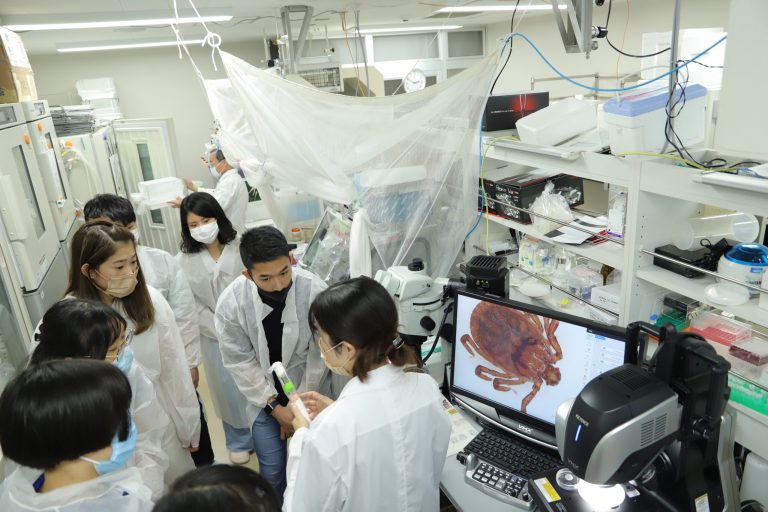
During the study tour, participants visited a number of institutes and facilities across eastern Hokkaido, and were instructed by veterinarians specializing in different animals, from pets such cats and dogs to large animals such as horses, cattle, and even polar bears. The goal is to provide participants, particularly the overseas members, with knowledge of veterinary medical practice in Japan, so that they would be able to compare it with their home countries. In addition, the course also seeks to foster multiculturalism and respect for diverse viewpoints in participants.
The study tour started off on the Hokkaido University campus, with a short orientation lecture. This was followed by a tour of the Veterinary Medicine Training Hospital, where participants observed a number of veterinary procedures being carried out, and compared notes on similarities and differences between practice in Scotland and Japan.
The participants visited the Hokkaido University International Institute for Zoonosis Control (IIZC). They attended a seminar by Hokkaido University Professor Hiroshi Kida and two students on their research projects. Subsequently, the participants were given a tour of the sequencer lab and the mosquito- & tick-raising facilities.
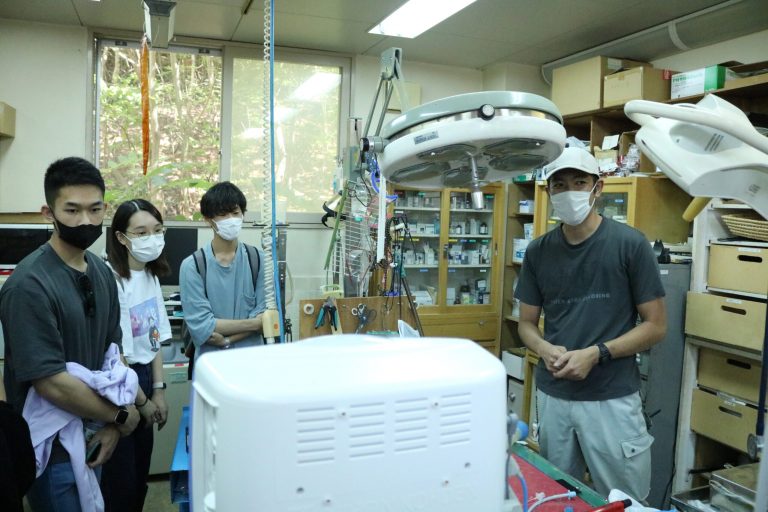
Following a conference on the second day, the study tour proper commenced on the third day of the course. The participants visited Asahiyama Zoo, Asahikawa City, and were introduced to the Zoo veterinary team, who guided them around the facilities and gave them a look at areas not accessible to the general public — including the facility where, in 2021, Asahiyama Zoo achieved the first captive breeding of polar bears in 40 years.
Dr. Nicola Earnshaw, Dick Vet General Practice Clinician at the University of Edinburgh, had accompanied participants from the University of Edinburgh for this study tour. “I hope this study tour helps students realize the diversity of options available in the veterinary sciences once they graduate,” she said. “I also hope this experience helps them understand that, though veterinarians the world over share similar goals, our practice and approaches are highly varied.”
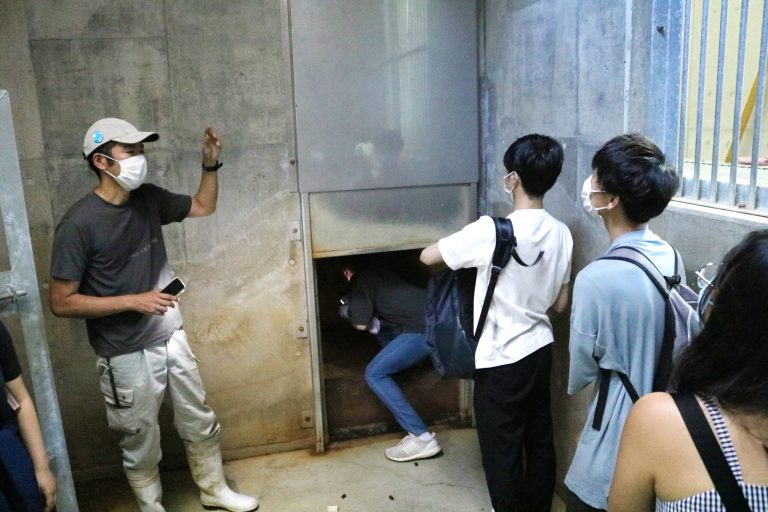
The next day the study tour proceeded eastwards, with the participants visiting the Shiretoko Nature Foundation to learn about deer and bear management, and then south to Shibetsu Town, Nemuro, to experience wildlife tourism from a veterinary perspective. Turning back west, the tour visited the Kushiro Wildlife Conservation Center, to learn about Hokkaido’s native wildlife and migratory birds that overwinter in the marshes of Kushiro.
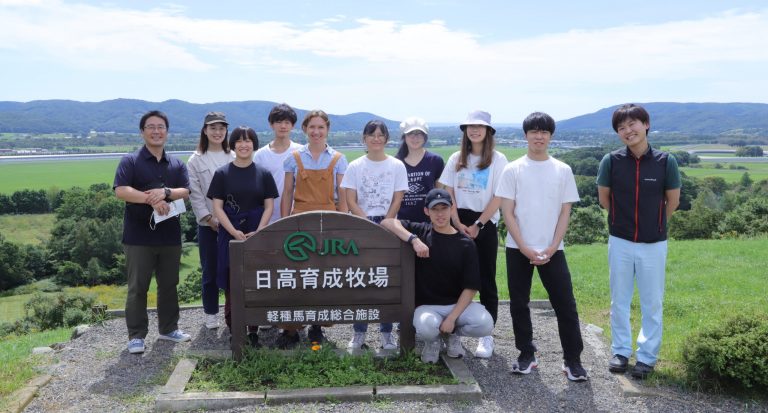
The tour then visited Obihiro University of Agriculture and Veterinary Science, where they were shown how the university practices veterinary care of horses. After a visit to the various facilities on campus, the participants were introduced to foals conceived by in vitro fertilization (IVF), which is important for the conservation of Japan’s native horse breeds.
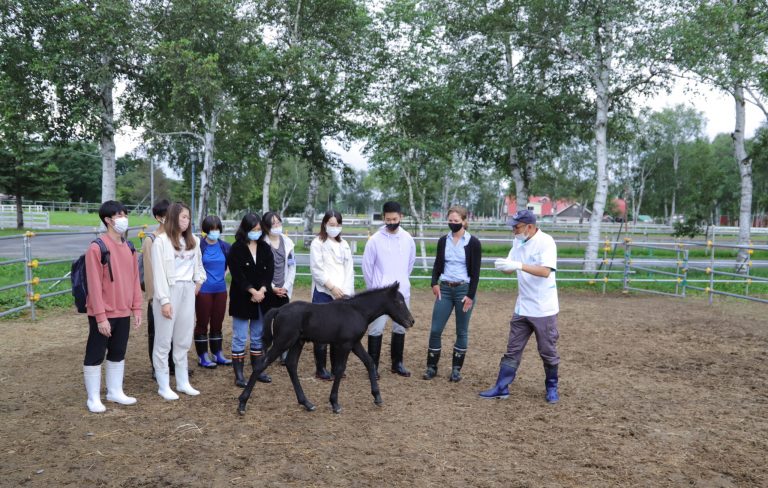
On the final day of the tour, the participants visited the Japan Racing Association (JRA) Training Ranch and the Bloodhorse Training Centre in Urakawa. Here, they learned about the veterinary needs of JRA and organized horse racing, as well as about the various facilities used to train horses for racing. The tour ended on the same day, with participants returning to their accommodations in Sapporo — and the overseas participants flying out the next day.
“This study tour is only one half of the course,” stated Yanagawa. “In a few months, six veterinary students from Hokkaido University will visit Edinburgh for a similar tour.”
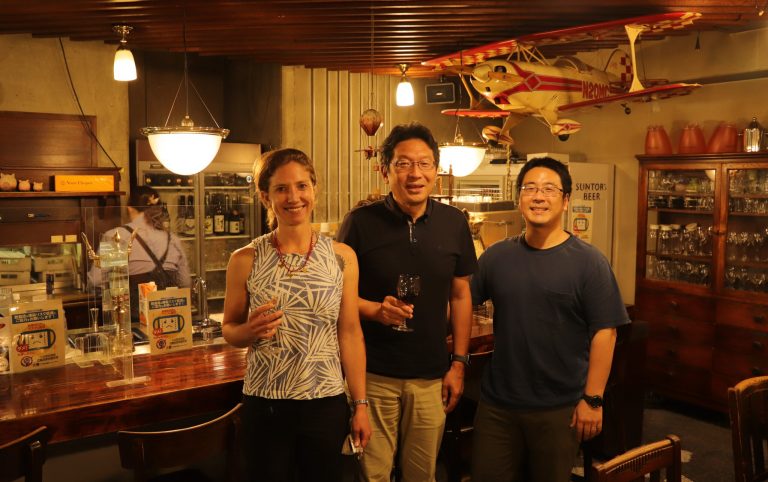
The course list for the Hokkaido Summer Institute 2023 is now available at https://hokkaidosummerinstitute.oia.hokudai.ac.jp/. Applications will run from March 6 to March 15, 2023.
The Advanced Seminar in Applied Veterinary Medicine: Wildlife Medicine I (Zoo Science) course will also be offered this year, in the second half of August (exact dates to be decided).


